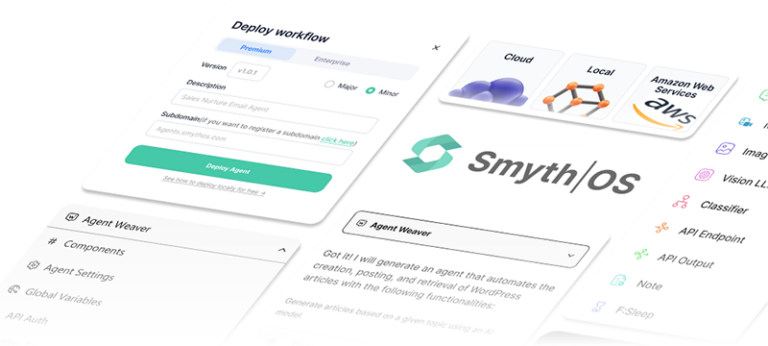Pioneering AI for People Across the Globe
Pioneering AI for People Across the Globe
Blog Article
SmythOS - Your AI Economy Partner
Synthetic intelligence (AI) is transforming industries ranging from healthcare to money, but one critical problem stays at the forefront of invention: inclusivity. While AI offers revolutionary possible to revolutionize lives, additionally, it holds the danger of reinforcing social inequities. For smythos to seriously enable culture, it should be made to be inclusive. This means ensuring equity, supply, and representation at all phases of development.
The Struggles of Bias in AI
Statistics demonstrate that partial AI components are a reflection of the information they are trained on. Poor illustration in datasets can result in discriminatory outcomes. Like, a widely mentioned examine revealed that face recognition computer software has an problem rate of 35% for darker-skinned girls, in comparison to less than 1% for light-skinned guys.That highlights a significant catch that disproportionately impacts previously marginalized groups.
The issue is not only limited by skin recognition. Language versions have exhibited biases, reinforcing dangerous stereotypes in their outputs. Inclusive education knowledge and varied clubs of developers are necessary to mitigate these issues. Without this, the chance stays that AI will perpetuate social inequality as opposed to fixing real-world problems.
The Benefits of Inclusive AI
When AI is developed inclusively, their benefits ripple across society. Inclusive AI might help link breaks for underrepresented neighborhoods in knowledge, wellness, and employment. For instance, available AI solutions like monitor viewers powered by natural language running have previously widened opportunities for people with disabilities. But there's still untapped potential to make these answers common rather than exceptions.
Research also shows range in AI progress leads to innovation. A examine from a premier institution records that businesses with high range in management functions are 45% much more likely to record larger market share growth. These ideas underline why inclusivity in AI is not really a requisite for moral reasons but a benefit for advancement and progress.

The Road Ahead
Making inclusive AI calls for change across multiple dimensions. Diverse and representative datasets, intersectional screening procedures, and strong ethical governance will be the cornerstones of equitable AI development. More over, policymakers must may play a role by enforcing regulations that push for visibility and accountability in AI systems.
The shift toward inclusive AI is not just in regards to the technology. It's about redefining what development looks like. By prioritizing inclusivity, we can ensure AI not only handles issues but does therefore for all, making nobody behind in the technological revolution.
While challenges remain, the growing debate about inclusivity in AI signs development toward a more equitable future. By approaching biases nowadays, we could style techniques that encourage rather than banish, showing the selection of the people they make an effort to serve.
Report this page